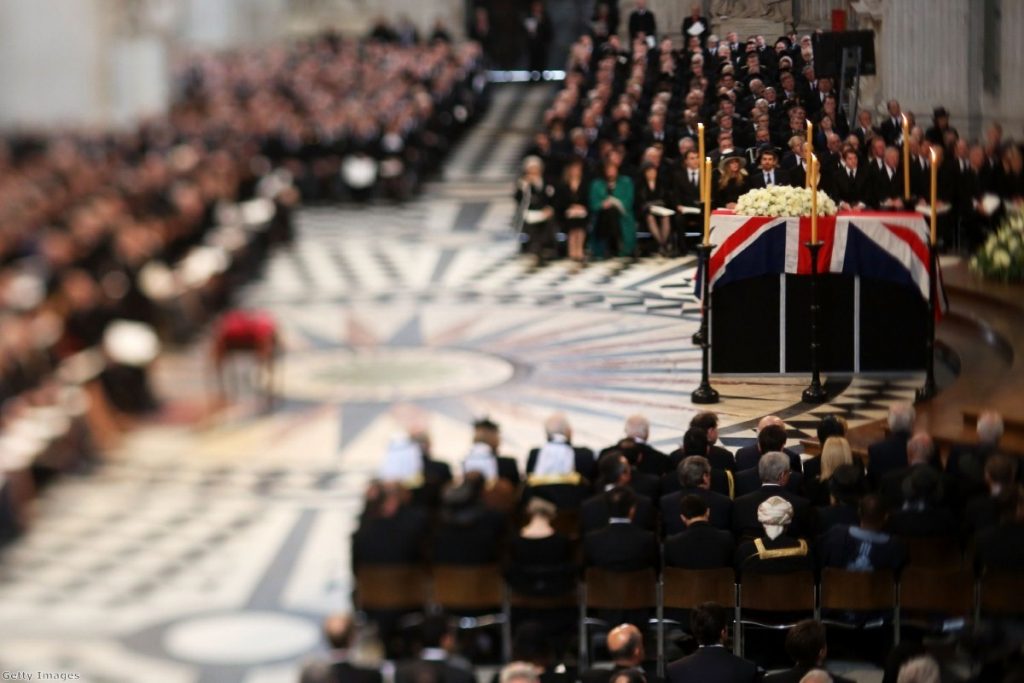Analysis: Bishop of London’s Margaret Thatcher funeral address
It is an almost impossible task: removing the defining feature of Margaret Thatcher's life, her irretrievably political perspective on life, from her funeral address. That the Bishop of London has achieved it makes him something of a master politician himself.
This will have been one of the most testing addresses Richard Chartres has ever had to write. The Bishop of London has responded to the challenge of laying Margaret Thatcher to rest with a speech that leaves all the questions about her future unresolved.
He begins with a determined attempt to define his purpose – a disclaimer which makes clear he is not expressing his own views about her career. "At such a time, the parson should not aspire to the judgements which are proper to the politician," he declares.
Having got that out of the way, there is not much to talk about. He addresses her Methodist religion and demonstrates that she was, underneath it all, a person of not insignificant spirituality. Her human touch is brought out with a personal recollection, too. "She suddenly grasped my wrist and said very emphatically, don't touch the duck pate, bishop – it's very fattening."
There is a fleeting glimpse of politics when Chartres reminds the 2,300 people gathered to remember Thatcher's life that the Tolpuddle Martyrs weren't "proto-Marxists" but Methodists, just like her. He retreats to the same tactic used by Ed Miliband in paying tribute to an erstwhile enemy – applauding her achievements as a woman. The way in which she fought her way to the top of a male-dominated world triggers feelings of respect and admiration, whatever your political views. Which is why it is in the address.
Chartres even goes so far as to excuse what remains perhaps her most controversial comment, that there is "no such thing as society". In the context of her concept of the Church, he suggests, it was "interdependence" which matters most. "Her later remark about there being no such thing as 'society' has been misunderstood and refers to some impersonal entity to which we are attempted to surrender our independence," he explains. This interpretation will not be agreed with by all watching. It is the closest Chartres comes to becoming an apologist for Thatcher.
The note that strikes is quickly altered by what follows, for it is the lack of a definitive conclusion which is most striking about this address. Instead Chartres poses questions about her time on this Earth which apply to all human beings. "What, in the end, makes our lives seem valuable after the storm and stress has passed and there is a great calm?" he asks. "The questions most frequently asked at such a time concern us all." Instead of eulogising Thatcher – and she had specifically asked that this be an address, not a eulogy – he is applying the questions that apply to the body inside the coffin to us all.
The address is an attempt to take the politics out of Margaret Thatcher. It's like trying to take the tennis out of Roger Federer or the wit out of Stephen Fry. It is their defining feature. And, in this address on Thatcher, it has been ignored.





-01.png)